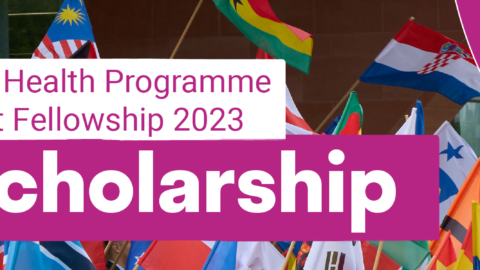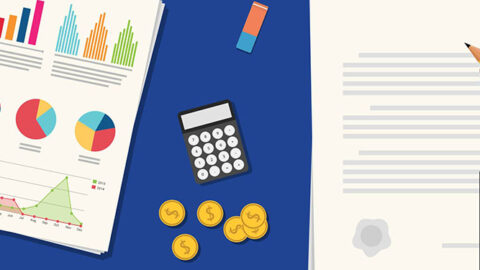I did not watch as Nigeria beat Cote d’Ivoire 2-1 to qualify for the semi-finals of the African Cup of Nations, AFCON 2013 currently underway in South Africa. Well, I am very reluctant to write about football, my ignorance of this subject is legendary and contrasts favourably to the rate of failure in WAEC and NECO examinations. I expected Cote d’Ivoire to win the game and had sketched a lofty epitaph for the AFCON 2013 Super Eagles which you are now, thankfully, spared from reading. May I instead congratulate Keshi and his team on this success and wish them all the best as they work to bring back the cup to Abuja. But if you are a faithful viewer of the largest television network in Africa, you would probably have no clue what I am talking about. I apologise. Having said that, may I inform you that I will not be proud of Nigerian football just yet, even when the Super Eagles win the current tournament.
I have always thought that football was overrated. Therefore I hold the unique distinction of being the only Nigerian who actively dislikes the game of football; yet even I try to watch when the flag of Nigeria is hoisted and the Super Eagles are playing. I have realised that matches of the Super Eagles often remind me of that day when General Abacha sat by his phone (it was a landline, back in 1996) and spoke with (all?) members of the Super Eagles during Atlanta ‘96. Needless to remind you, they brought back gold. Perhaps President Jonathan had such motivational plans in mind when the Eagles went to the World Cup in 2010 only to be eliminated in the first round without winning a single game. President Jonathan’s response was unprecedented: he dissolved the Super Eagles and withdrew Nigeria from FIFA for the next 2 years in order to put our football house in order. Well, we went back to chasing the round leather ball not too long afterwards; but our house remained as it was in 2010. Not in order.
Over the years I have observed 2 trends in relation to Nigerian national football; first, it became fashionable to refer to the national team as ‘The Eagles’ even by the NFF; the superlative ‘Super’ became extinct except among a mischievous few who speak of a set of ‘Super Chickens’. Fortunately, after the victory over Cote d’Ivoire, I have seen the ‘super’ written a lot and often emphasized especially among those who ate elephants for dinner after the game. The second trend is that there is a lot more to football going on for the Nigerian Super Eagles.
Each time 11 Nigerians stroll into the pitch and sing the national anthem which may or may not be ours, there is a lot more than the score-line at stake. In AFCON 2013, there is first the question of why these players are playing and why not some others; for example, there is the unending prognosis of why Osaze Odemwingie is not part of the team. There are even reports of the worth of Mikel Obi’s sexy legs which, by the way do not score; not even a penalty when victory depended on it. But my most recurring thought while watching Super Eagles is the mystery of how $236,000 successfully disappeared from the safe of the Nigerian Football Federation in 2009 and has not been heard from ever since. This is the kind of mystery Hercule Poirot would solve with great drama and help from Arthur Hastings; unfortunately Poirot and Hastings do not work for the NFF, the Nigerian Police or for the EFCC.
There is also the burden of the different ‘Official Delegations’ who ‘grace’ Super Eagle’s matches. There are probably ‘official delegations’ from all arms of governments and perhaps from every state to the football tournaments in which Nigeria is competing. In 2010, virtually the whole of the government was there; and in a little reported incidence, 62 Senators (out of a total 109) almost perished in an air mishap en-route to join other government officials in South Africa to watch the games. Even after the air disaster was averted, our brave Senators still found their way to SA – perhaps it was crucial to form a quorum before the games could be played. But not all the delegations to the games are official; some are plain unthinkable like this one from Imo. In the 2010 World Cup, there was the outrageous “special bonanza from the fertile imagination” of Governor Ihedi Ohakim tagged Ohakim for Youths World-Cup Special’ which sponsored 27 youths who did not even have international passports previously to watch the World Cup. As Nigeria competes in the 2013 African Cup of Nations with a 490 million Naira budget; only the Almighty knows how much is spent on delegations watching the games.
But if you thought the 11 wise men are playing solely for Nigeria, for Keshi and for all the visiting delegations (official and ‘outrageous’), then you are wrong. We know that each member of the team earned $30,000 when they qualified for the Quarter Finals by sending off Ethiopia and earned additional $15,000 when they won a place in the semi-finals. For folks like me, that is a huge amount of money! And the dollar rain is about to get bigger as the team advances close to the trophy. So would the price of each goal. Which is why you ought to have already read The Book of AFCON except if you only recently arrived from Pluto.
So what exactly goes through the minds of Yobo, Mikel, Enyeama (or whoever is the Captain) as the team files out to play? Here is a guess: “All the delegations might have to reluctantly go home if we lose; Coach might be sacked and a new Coach might not like my style just like Osaze; the National Assembly might set a committee to probe how much we earned; the Government might withdraw from FIFA again; damn, the people at home are calculating the bonuses; the bonus for goals would go up if we win this one…”
Burdened by these non-footballing concerns, it is unlikely that anyone could play football. The human mind could only process as much and men are not famous for multi-tasking. But it is not commitment; practice and discipline from the Super Eagles that we will need to have the trophy in Abuja. It is the heartfelt prayers of the ruling Peoples’ Democratic Party (PDP). We now know for a fact that their prayers work (don’t ask me to whom they prayed). I personally have big questions about the declared secularity of Nigeria, but even I will be listening closely to ‘prayer points’ that would be coming out of the PDP secretariat. Hopefully, after Nigeria has won the AFCON trophy, PDP shall pray for total turn-around of the fortunes of Nigerian football. And if it be the will of the Lord, please let that $236,000 be found. Amen.
Nengak Daniel Gondyi is presently a post-graduate student in International Migration and Ethnic Relations at Malmö Högskola in Sweden. He is also a Senior Programme Officer of the Abuja based Centre for Democracy and Development, CDD. He holds a Bachelors’ in International Studies from the Ahmadu Bello University. Read his full profile here.






